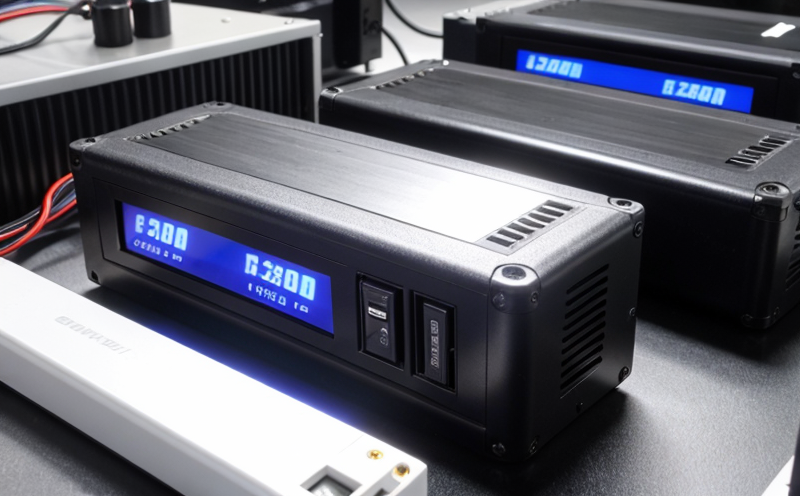Battery Cell Performance Testing
The battery cell performance testing is a critical process in ensuring the reliability and safety of batteries used in various applications such as automotive, aerospace, consumer electronics, and renewable energy storage systems. This service involves a series of tests designed to evaluate the electrical characteristics, thermal stability, mechanical integrity, and longevity of individual battery cells.
The importance of this testing cannot be overstated. In industries where safety is paramount, like automotive or aviation, even minor flaws in battery design can lead to catastrophic failures. By rigorously testing each cell's performance under controlled conditions, manufacturers ensure that only the highest quality components make it into production. This not only enhances product reliability but also contributes significantly to environmental sustainability by reducing waste.
At Eurolab, our expertise lies in providing comprehensive battery cell performance tests using state-of-the-art equipment and methodologies aligned with international standards such as ISO 12405-3 and IEC 62660. Our team of engineers specializes in tailoring test protocols to meet specific client requirements while adhering strictly to industry best practices.
Typical testing parameters include voltage, current capacity, internal resistance measurement, cycle life assessment, energy density evaluation, and thermal management analysis. Specimen preparation involves precise charging/discharging cycles followed by rest periods to simulate real-world usage scenarios accurately.
Instrumentation plays a crucial role in obtaining accurate results during these tests. We employ advanced multi-meter systems capable of measuring minute changes in electrical properties over extended durations without affecting the integrity of the sample. Additionally, we utilize sophisticated calorimeters and thermocouples placed strategically around the test chamber to monitor temperature fluctuations closely.
The acceptance criteria for battery cells undergoing performance testing vary depending on their intended application but generally focus on maintaining consistent performance across batches while meeting regulatory thresholds regarding safety and efficiency. For instance, electric vehicle manufacturers must ensure that their lithium-ion batteries can withstand multiple charge-discharge cycles before being deemed fit for market release.
By investing in thorough battery cell performance testing early in the development process, companies save costs associated with late-stage failures or recalls later on down the line. Furthermore, successful completion of these tests provides valuable insights into potential improvements that could enhance overall product quality and competitive advantage.
Why It Matters
Ensuring optimal battery cell performance is essential for several reasons beyond just compliance with regulations. One key reason is safety – improper functioning of batteries can lead to fires or explosions, posing significant risks not only to users but also to surrounding structures and environments.
In terms of environmental impact, efficient batteries contribute positively towards reducing carbon footprints by enabling more sustainable energy storage solutions. Efficient utilization of raw materials through optimized designs translates directly into lower greenhouse gas emissions throughout the product lifecycle.
From an economic perspective, reliable battery cells reduce warranty claims and repair costs for manufacturers while enhancing brand reputation among consumers who value durability and safety when purchasing electronic devices or vehicles powered by lithium-ion technology.
The demand for eco-friendly alternatives has surged recently due to increasing awareness about climate change. Consumers increasingly prefer products that align with sustainable practices throughout their entire life cycle, making it imperative for battery manufacturers to prioritize robust testing methods early on in the design phase.
Scope and Methodology
| Test Parameter | Description | Methodology |
|---|---|---|
| Voltage Measurement | Determines the open circuit voltage and internal resistance. | Utilizes a high-precision multi-meter connected directly to the cell terminals after reaching equilibrium. |
| Cycling Capacity Test | Evaluates how many charge-discharge cycles can be sustained before capacity drops below acceptable levels. | Performs multiple full discharge/charge cycles, monitoring voltage profiles throughout each cycle. |
| Thermal Stability Analysis | Assesses the battery's ability to operate safely within specified temperature ranges without degrading performance or causing hazardous conditions. | Subjects the cell to extreme temperatures while continuously measuring its response using calibrated thermocouples placed near critical areas. |
| Electrochemical Impedance Spectroscopy (EIS) | Provides insight into internal resistance variations within different frequency ranges indicative of overall health status. | Applies sinusoidal signals across a wide range of frequencies and calculates impedance values based on current flow measurements. |
| Critical Failure Modes Study | Identifies possible failure modes such as short circuits or internal shorts which could compromise safety. | Involves disassembly checks following prescribed procedures to identify any signs of wear or damage. |
The above table outlines some common test parameters along with their descriptions and associated methodologies employed during battery cell performance testing. Each step is meticulously documented using standardized forms approved by relevant regulatory bodies.
Eurolab Advantages
At Eurolab, we pride ourselves on offering unparalleled expertise in battery cell performance testing services. Our dedicated team consists of highly skilled professionals with extensive experience across diverse sectors including automotive, aerospace, and consumer electronics.
We leverage cutting-edge technology to deliver accurate, reliable results every time. From high-precision multi-meters capable of detecting minute voltage fluctuations to sophisticated calorimeters designed for precise temperature monitoring, our laboratory facilities are equipped with the latest tools available today.
Our commitment to quality extends beyond just performing tests; it includes providing detailed reports that not only summarize findings but also suggest actionable recommendations for improvement. By offering this level of service, we help our clients stay ahead in an ever-evolving market environment where innovation drives success.





